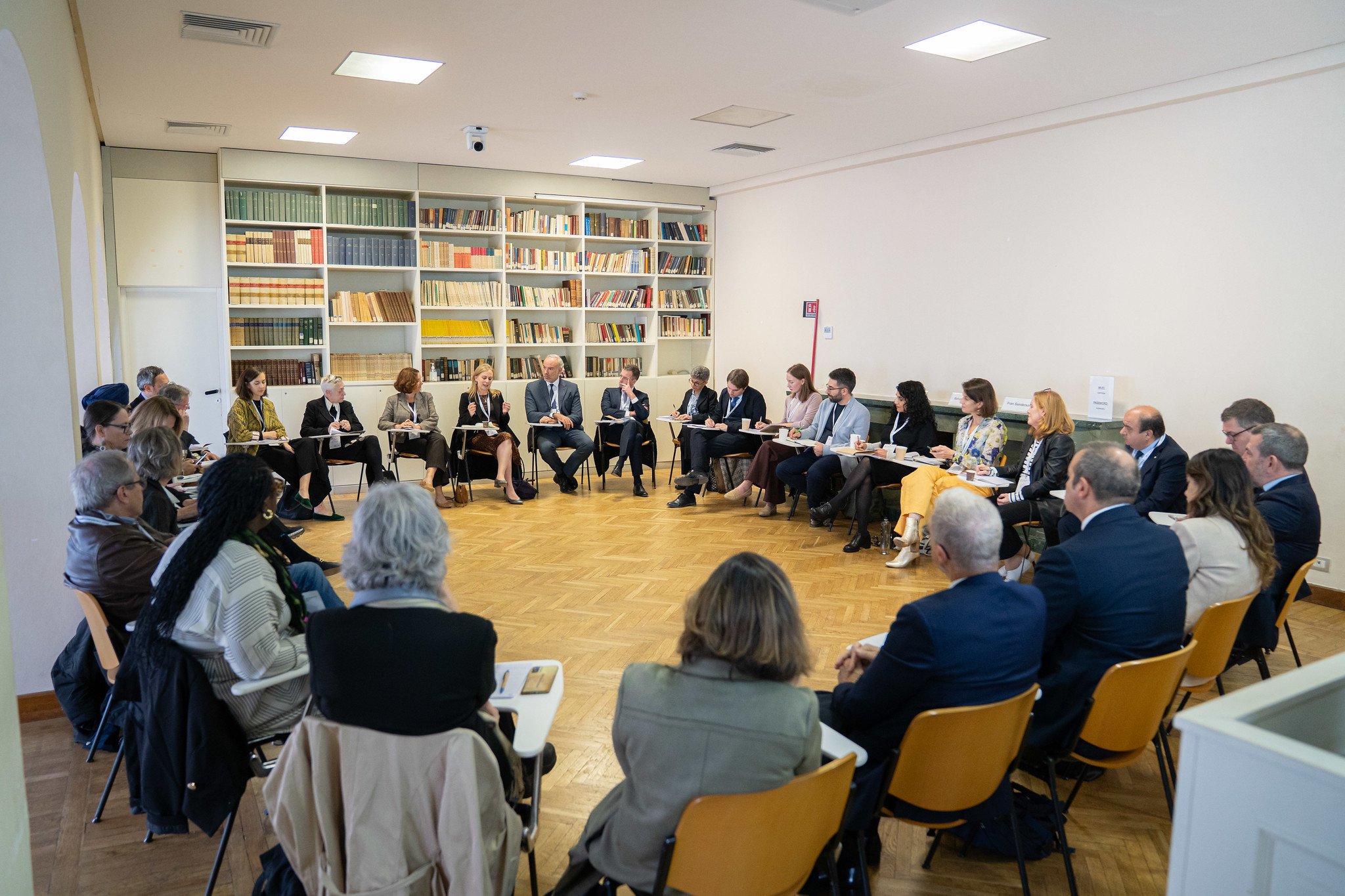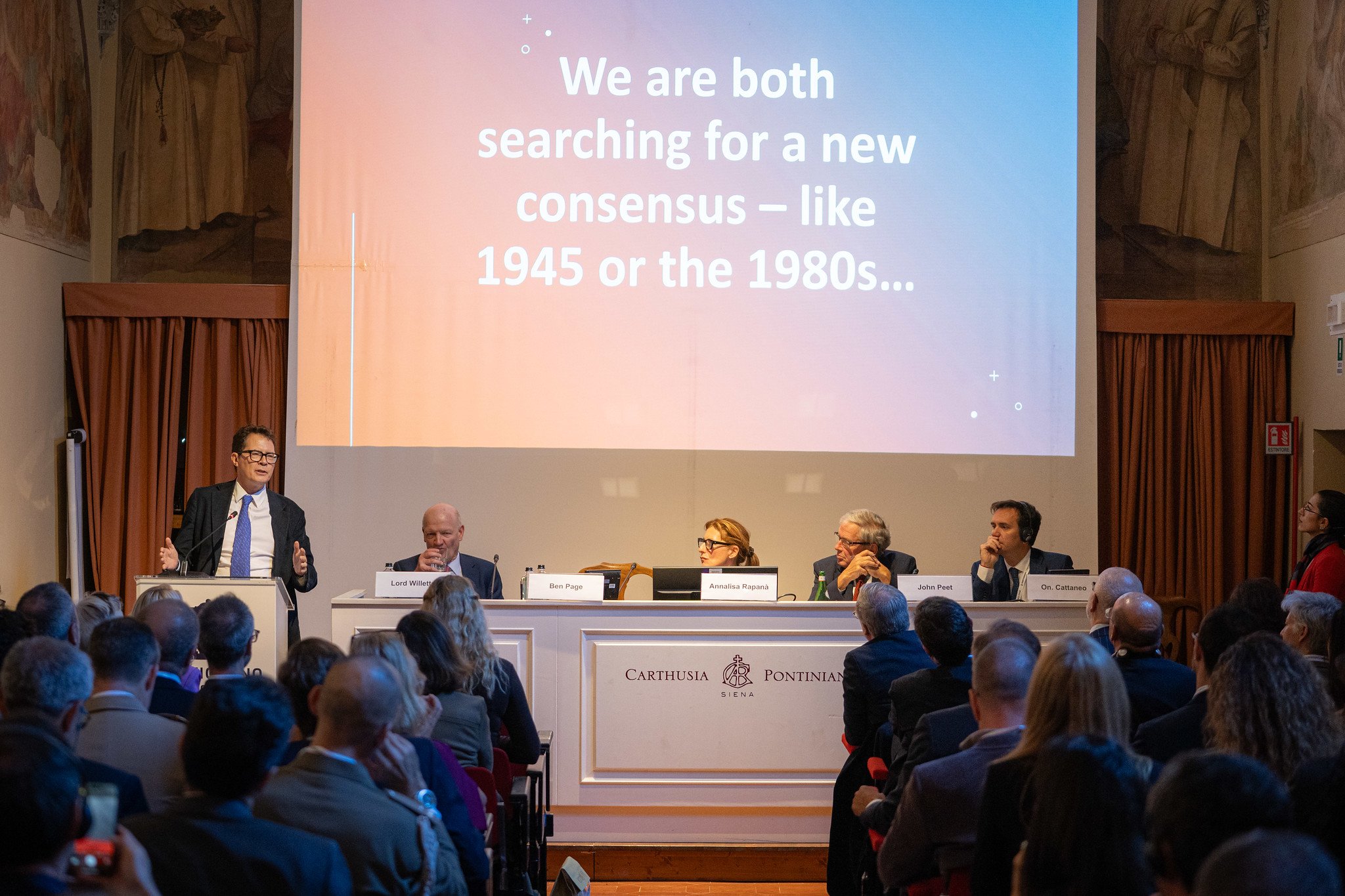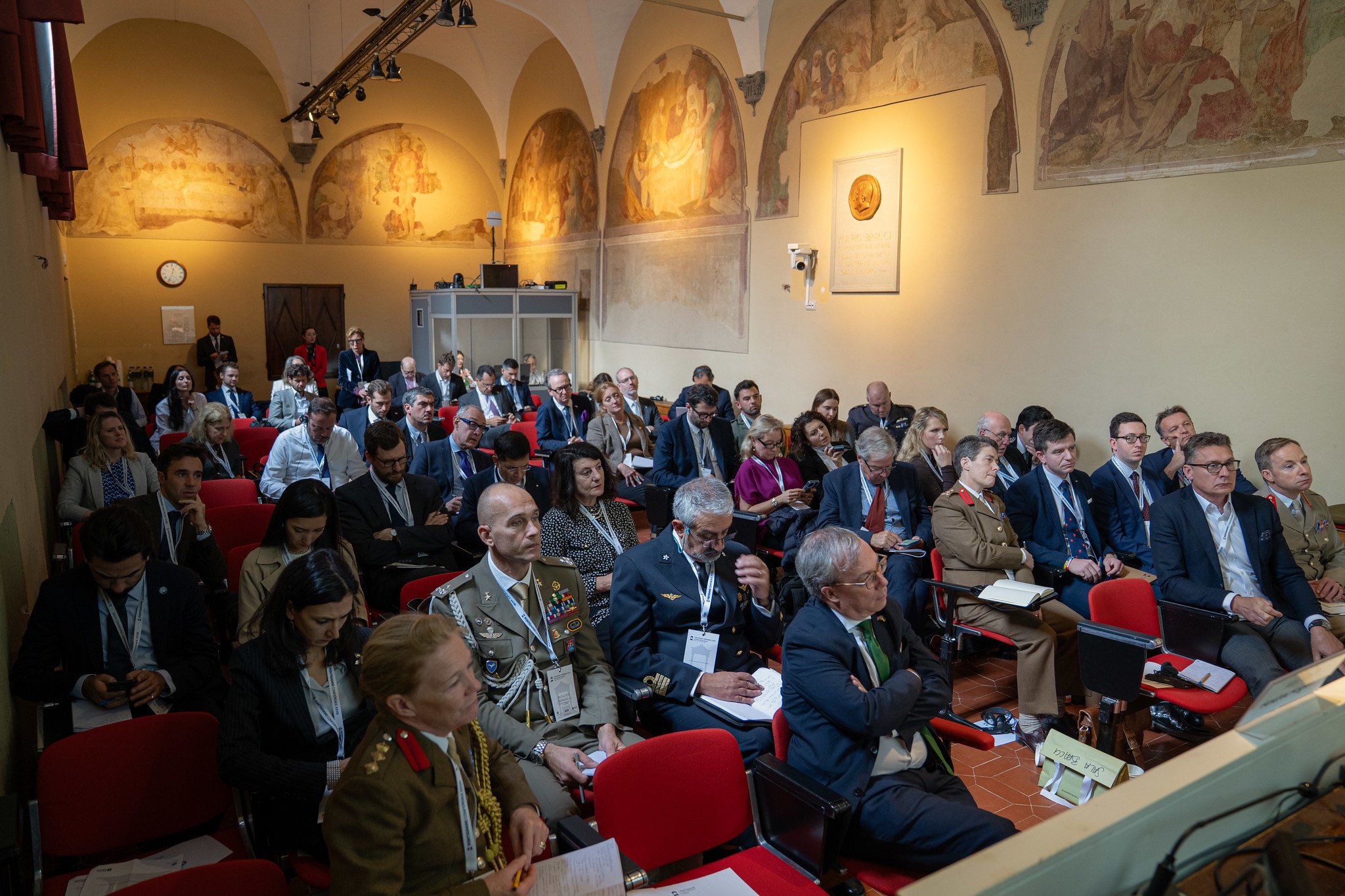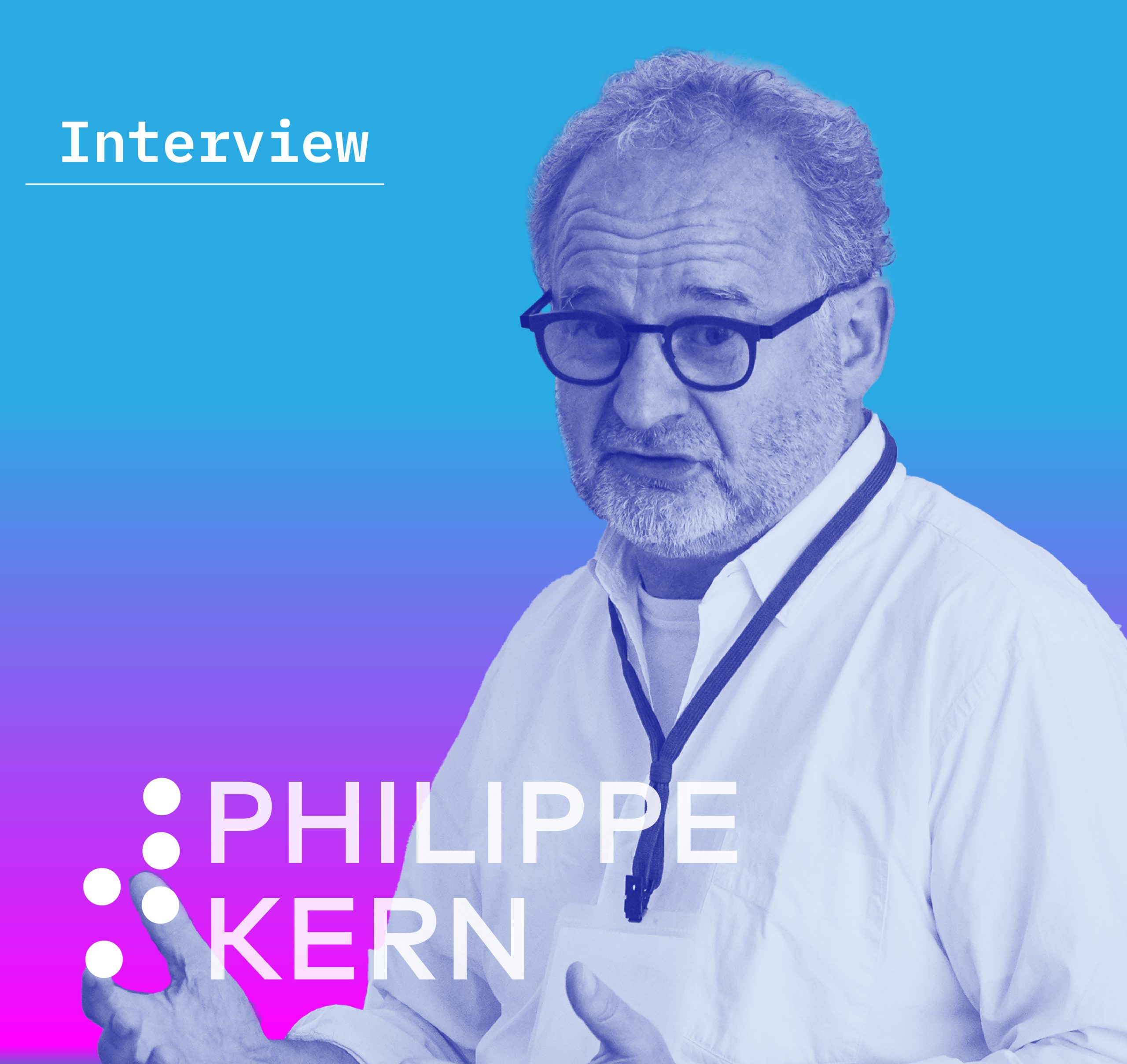On October 16-17, Materahub took part in the 23rd Pontignano Conference, a cornerstone of UK-Italy bilateral relations, held at the historic Certosa di Pontignano near Siena.
Organised by the British Embassy in Rome and British Council Italy under the auspices of British Ambassador Ed Llewellyn and British Council Country Director Brian Young, this year’s edition focused on the theme of “Growth and Resilience” from an international perspective.
In this context, Materahub was invited to share the experience of Matera, showcasing a model where cultural initiatives drive long-term engagement, not only through infrastructure, but also by investing in human capital and fostering active stakeholder participation.
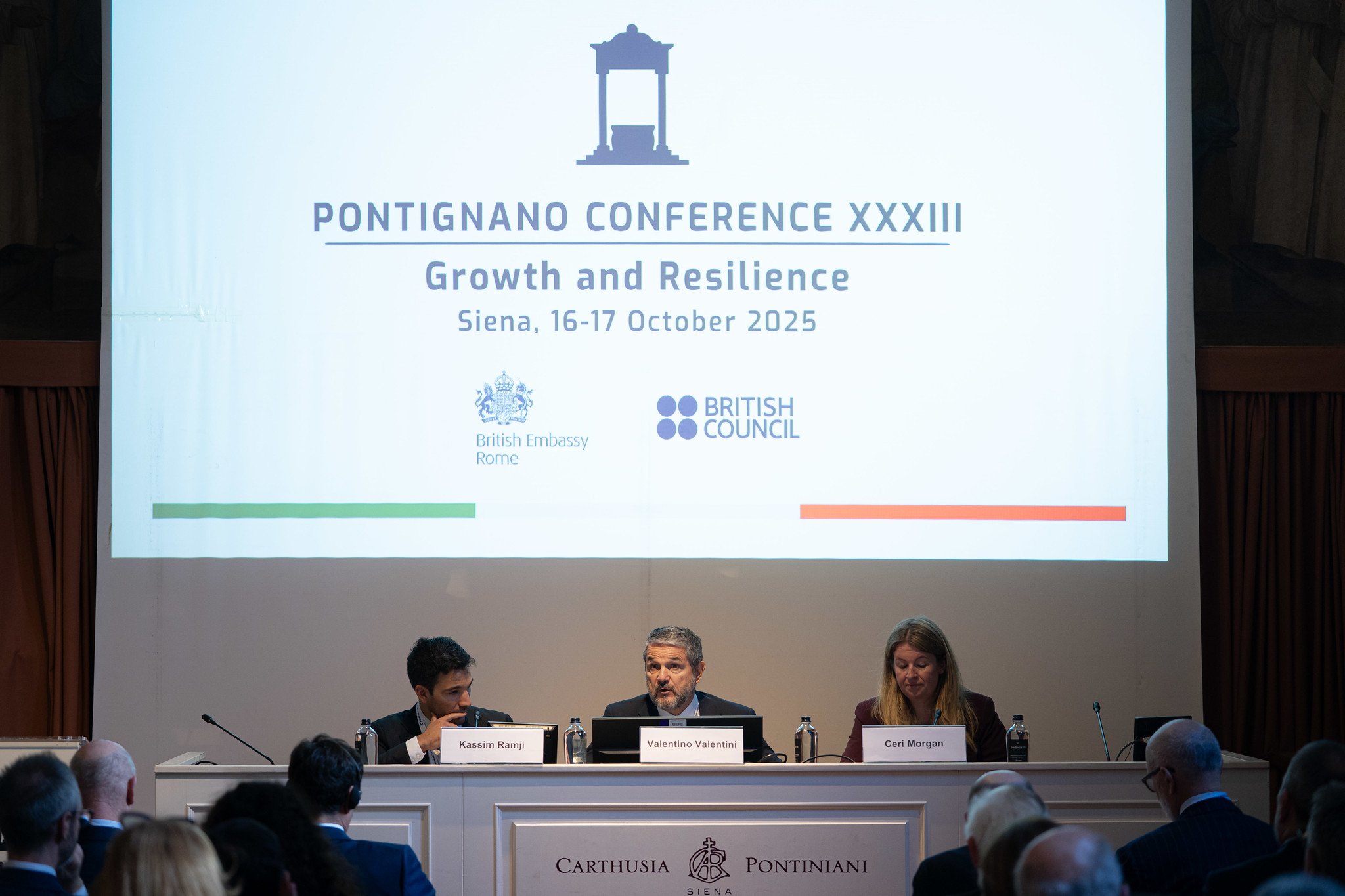
Creative Industries: A Catalyst for Sustainable Development
A highlight of the conference was the dedicated session on Creative Industries, moderated by Rehana Mughal, Director of the Creative Economy Global Programme at the British Council. The panel examined the pivotal role of the cultural and creative sectors in fostering economic growth, enhancing social inclusion, and strengthening community resilience in both the UK and Italy. The session featured Paolo Montemurro, director of Materahub, and Fran Sanderson, CEO of Figurative, who shared insights and strategies from their respective experiences, highlighting models that balance economic development with meaningful engagement and environmental responsibility.
Representatives from major cultural institutions across the UK, Italy, and Europe contributed to the discussion, emphasizing that creative industries are not just cultural assets, but strategic drivers of social and economic development.
Matera’s Model: Investing in People, Building a Legacy
Drawing on Matera’s transformative journey, Montemurro recounted how the city’s successful bid as European Capital of Culture 2019 reshaped the local landscape, creating a fertile environment for creative-led urban regeneration.
Founded in 2011, Materahub seized this momentum to support local creative sectors while fostering collaborations with European partners, eventually becoming a core partner and funder of EIT KIC Culture and Creativity. Reflecting on Matera’s experience, we emphasized how prioritizing investments in people and skills, rather than focusing solely on physical infrastructure, has become the cornerstone of sustainable cultural development. This approach not only nurtures talent and builds capacity within the creative sector but also fosters long-term social and economic impact, a model that is increasingly being recognized and adopted at the national level in Italy.
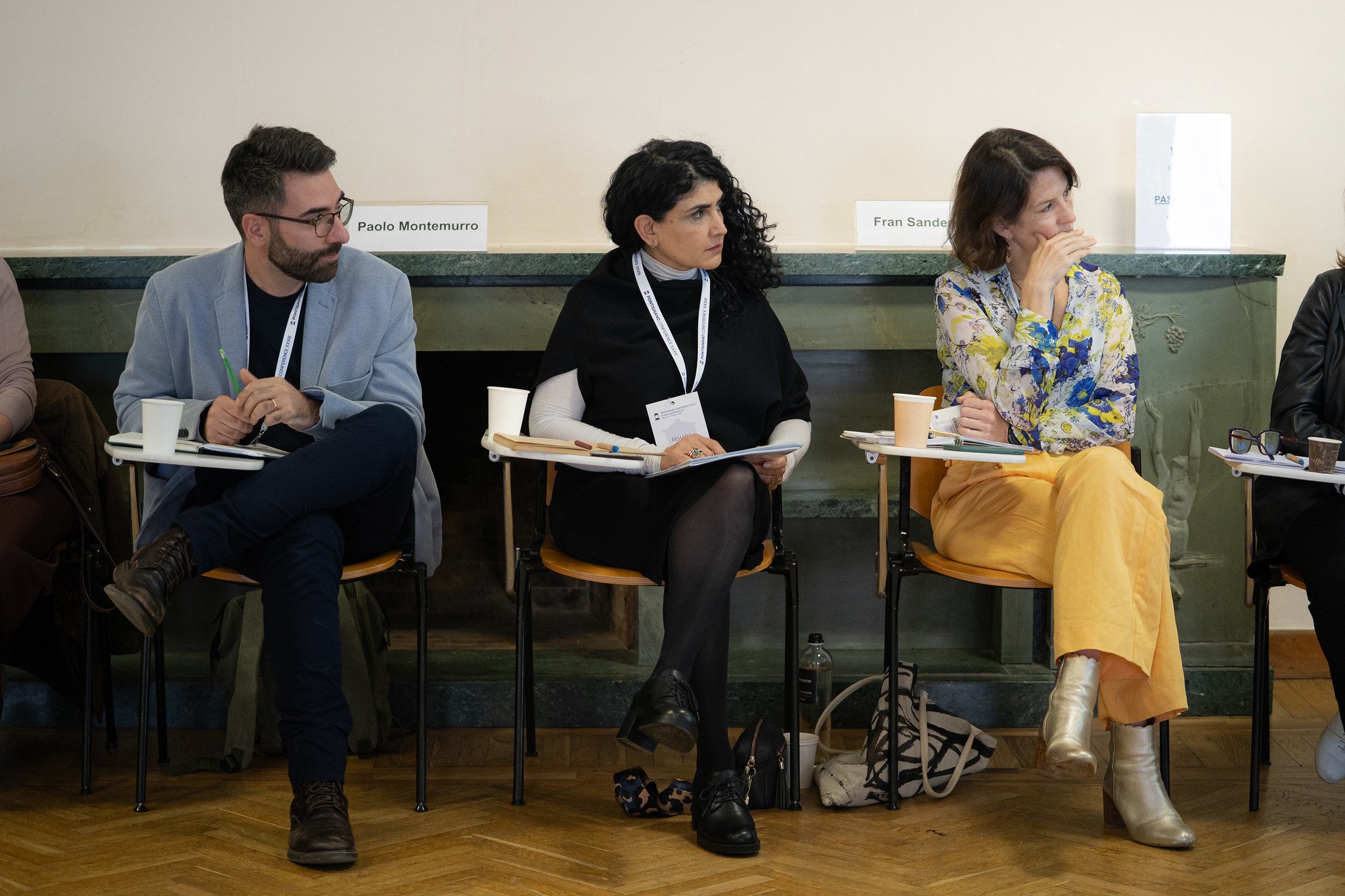
Four Key Reflections for the Creative Sector
Montemurro highlighted four key areas for reflection during the session:
- Culture as a Driver of Ambition and Participation: initiatives ranging from Capitals of Culture to Capitals of Youth and Choirs demonstrate how both small- and large-scale cultural projects can generate engagement, inspire participation, and leave a lasting legacy.
- Investing in People Beyond Infrastructure: Even when physical infrastructure is limited, investing in skills, international exposure, and capacity building creates a human legacy that sustains the creative sector. Policies and adaptable models are essential to support young talent through mobility, exchanges, and professional growth.
- Shared Digital Frameworks and Metrics: Collaborative agreements and shared metrics for the creative digital sector enable better data collection, industry monitoring, and cross-country cooperation. Engaging youth, startups, and freelancers in defining value ensures digital innovation fosters fair competition, sustainable careers, and professional development.
- Empowering the Next Generation: Opening space for newcomers requires reflection on leadership responsibilities and effective transfer of competencies, ensuring the next generation can thrive and actively shape the creative ecosystem.
Strengthening UK-Italy Bilateral Collaboration
The Pontignano Conference reaffirmed the UK’s role as a leading reference point in Europe and underscored the vital importance of maintaining strong bilateral collaboration between the UK and Italy, particularly within the cultural and creative industries.
While discussions addressed pressing topics such as cybersecurity and defense, representatives from the creative sector called for greater inclusion at these strategic tables, stressing that it is precisely in these high-level forums, where decisions on growth, resilience, international relations, and societal challenges are made that the sector can contribute most meaningfully. By bringing innovation, human capital, and fresh perspectives, cultural and creative industries enrich policy-making, demonstrating that culture is not peripheral but central to addressing the complex challenges of our time.
Looking ahead, there is a shared optimism that future editions of the conference will deepen this engagement, creating more opportunities for the sector to shape strategies, influence policy, and foster a resilient, inclusive, and forward-looking European creative ecosystem.
Images credits: British Embassy Rome


